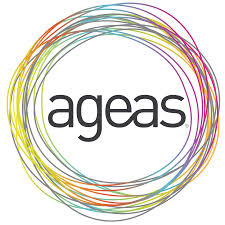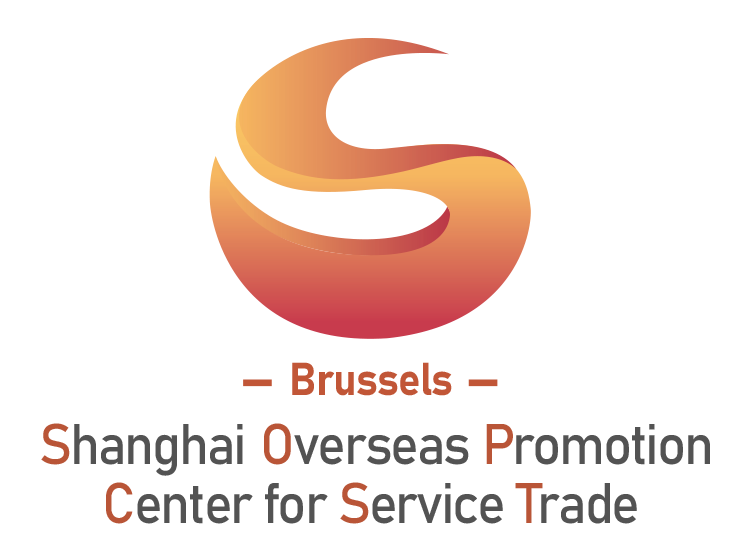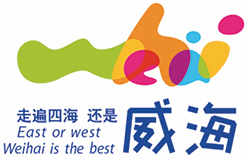EMA starts rolling review of CoronaVac, WHO approves Sinopharm vaccine for emergency use
May-11-2021 By : fcccadmin
The European Medicines Agency (EMA) has started a rolling review of China’s Sinovac coronavirus vaccine to assess its effectiveness and safety, a first step toward possible approval for use in the 27-nation European Union (EU). Separately the World Health Organization (WHO) has approved a vaccine made by Sinopharm Beijing for emergency use and inclusion in the Covax facility to provide vaccines to developing countries. WHO approval of the CoronaVac vaccine of Sinovac is expected this week.
EMA’s decision to start the review is based on preliminary results from laboratory and clinical studies. “These studies suggest that the vaccine triggers the production of antibodies” that fight the coronavirus “and may help protect against the disease,” the Agency said in a statement. Rolling reviews are aimed at speeding up the approval process by allowing researchers to submit findings in real-time before final trial data is available. Sources at Sinovac told the Global Times that since there are many Covid-19 vaccines awaiting EMA approval, the process is not expected to be completed soon. The previous four vaccines took two to three months to be approved after rolling reviews began.
The EMA, which so far has approved four coronavirus vaccines (Pfizer/BioNtech, Oxford/AstraZeneca, Moderna and Johnson & Johnson), added that no application seeking marketing authorization for the Sinovac vaccine has been submitted yet. The Agency is also conducting rolling reviews of three other vaccines: CureVac (Germany), Novavax (U.S.) and Sputnik V (Russia). The rolling review will continue until “enough evidence is available for a formal application for marketing authorization,” the EMA said.
The Sinopharm vaccine – now approved by the WHO for emergency use – has been authorized by 45 countries and jurisdictions for use in adults over 18, and more than 65 million doses have been administered through emergency use programs, while the Sinovac vaccine has been authorized by 32 countries and 260 million doses of the vaccine have been distributed to the public in domestic and overseas markets.
The EU’s 27 member states also began discussing a proposal to ease coronavirus travel restrictions in an effort to resuscitate the tourism sector and broader economy. The EU is preparing to again welcome vaccinated visitors and those from countries where Covid-19 is under control. But if virus variants emerge, the EU could still use an emergency brake mechanism and quickly reimpose travel restrictions. Visitors would have to proof that they have had the “last recommended dose of an EU-authorized vaccine” approved by the European Medicines Agency (EMA) at least 14 days prior to arrival in the EU. The European Commission hopes the member states would adopt the proposal at the end of the month. Vaccine certificates would not exempt travelers from requirements such as presenting a negative test result or undergoing a quarantine that individual EU member states regard as necessary in their own national health policies. The European Commission has so far only proposed lifting restrictions on non-essential travel to travelers coming from Australia, New Zealand, Rwanda, Singapore, South Korea and Thailand. Chinese travelers will also be allowed in if China reciprocates by allowing EU citizens to enter China.
This overview is based on reporting by the China Daily, Shanghai Daily and Global Times.
Number of imported Covid-19 cases rising but aviation restrictions to be eased
May-04-2021 By : fcccadmin
With the number of infections still rising in many parts of the world, China is under rising pressure to guard against imported Covid-19 cases and domestic outbreaks. China has registered 364 confirmed imported Covid-19 cases since the beginning of April, an average daily increase of more than 20% over the previous month, Mi Feng, Spokesperson with the National Health Commission (NHC), said. Mi also alerted the public to the long-term, complex and uncertain nature of epidemic prevention and control. The number of new Covid-19 cases globally reached more than 5.75 million in the past week, of which more than 40% were in countries that have a land border with China, with several countries experiencing explosive surges. Amid strengthened quarantine measures for inbound travelers, at least two kinds of reagents should be used for nucleic acid tests on the 14th day after their entry into China, said NHC official Wang Bin, adding that the tests should be carried out by different testing institutions to improve accuracy.
China requires people entering the country to undergo a 14-day quarantine and medical observation before continuing another seven-day health observation at home. They should take nucleic acid tests on the day after the quarantine has been lifted, and again on the seventh day,
China’s aviation regulator will slightly relax rules to suspend international flights if too many Covid-19 carriers are onboard. Airlines can now choose to cap the load factor on a flight, or the percentage of seats filled, to no more than 40% for four weeks if more than five but less than 10 passengers on a previous flight test positive for Covid-19 after arriving in China, the Civil Aviation Administration of China (CAAC) said. Previously, such flights would have to be suspended for two weeks. The new rules came into effect on May 1, CAAC added. China has drastically cut international flights since March last year. A “Five One” policy allows mainland carriers to fly just one flight a week on one route to any country and foreign airlines to operate just one flight a week to China. But as the coronavirus situation in China is gradually brought under control, it has allowed more foreign airlines to resume services to China.
Delta Air Lines increased seating capacity on flights between Shanghai and the United States from May 1. The Atlanta-based carrier will reopen middle seats to passengers on all flights between China and the U.S., which will increase capacity by nearly 20%. Middle seats have been blocked to reduce contact between passengers since the coronavirus outbreak. However, the carrier is still capping capacity on flights to China at 75% to abide by CAAC regulations. Delta also resumed service between Shanghai and Seattle, and is also operating four weekly flights between Shanghai and Detroit via Seoul. Passengers will not be required to disembark during the stopover in Seoul. Currently, most people traveling between the U.S. and China are students studying abroad. In addition to Delta, United Airlines is operating four weekly passenger flights between San Francisco and Shanghai. Chinese carriers, including Air China, China Eastern, China Southern and Xiamen Air, are operating flights between Beijing, Shanghai, Guangzhou and Xiamen and Los Angeles and New York.
The U.S. announced it would ease restrictions on Chinese and other foreign students to enter the U.S. this fall. Around 372,000 Chinese accounted for 35% of international students in the U.S. in the 2019-20 academic year. However, most students would not be able to obtain visas in time due to the huge backlog. Following the U.S. announcement, both fares and demand for China-U.S. air routes surged five-fold in just one day, according to Chinese online travel platform Qunar. A customer service representative from Trip.com said that all direct flights from Beijing and Shanghai to New York during July and August have sold out and the remaining ones are mainly transfer flights via Hong Kong.
The World Health Organization (WHO) is expected to soon give emergency approval for China’s two main Covid-19 vaccines. One of the vaccines is made by state-owned Sinopharm and the other by the private company Sinovac Biotech. China has already injected millions of doses of both vaccines at home and has exported them to many countries, particularly in Latin America, Asia and Africa. An emergency listing from the WHO is an indication to national regulators of a shot’s safety and efficacy, and would allow the Chinese vaccines to be included in COVAX, the global program to provide vaccines mainly to poor countries. So far, the WHO has given emergency approval to vaccines from Pfizer-BioNTech, Oxford-AstraZeneca, Johnson & Johnson and Moderna.
The Chinese government also announced the establishment of a new central-level agency – the National Administration of Disease Prevention and Control, and appointed Wang Hesheng, Vice Minister of the National Health Commission (NHC) as Director-General of the new agency.
This overview is based on reporting by the China Daily, Shanghai Daily and Global Times.
Some Chinese embassies starting to accept proof of vaccination with foreign-made vaccines for travel to China
Apr-27-2021 By : fcccadmin
The Chinese Embassy in the U.S. has started to accept proof of vaccination from people seeking to enter China who have been inoculated in the United States with Covid-19 shots made by U.S. drugmakers. Travelers who have had the Pfizer-BioNTech shot or the Moderna and Johnson & Johnson vaccines can submit proof as part of the documentation needed for entry into China, the Chinese Embassy in Washington said in a statement. The new policy suggests that travel restrictions will be gradually eased. China has not yet approved vaccines developed by non-Chinese drug makers for use domestically, although BioNTech’s vaccine is in the pipeline for authorization by July. BioNTech has agreed to cooperate with Shanghai Fosun Pharma to deliver 100 million doses to China in 2021, pending approval. Fosun has sole marketing rights for the vaccine in China, while BioNTech partners with Pfizer in other parts of world. Other Chinese embassies that accept non-Chinese vaccination records include the Embassy in Iraq, which accepts vaccinations with the AstraZeneca vaccine. China’s Foreign Minister Wang Yi said last month China was willing to hold talks with other countries over mutual recognition of the Chinese QR health code, which would contain a digital certificate of Covid-19 vaccination.
A scientist who took part in the international team studying the origins of Covid-19 has expressed surprise and dissatisfaction at remarks made by World Health Organization (WHO) Director-General Tedros Adhanom Ghebreyesus over further researching the hypothesis that the virus leaked from a laboratory in China. The WHO Director General has disregarded the hard-won research outcome and consensus among the international science community in his remarks, the scientist said. An international team of scientists visited Wuhan between January 14 and February 10 to conduct a Covid-19 origin-tracing study, before releasing a 120-page report on March 30 saying the virus most probably jumped from an animal, potentially a bat or pangolin, to an unknown intermediate animal host and then to humans. The report added that it was “extremely unlikely” that the virus spread to humans through a laboratory leak. He also rebutted Tedros’ remarks that members of the international team encountered difficulties in accessing raw data.
The Chinese-made CoronaVac Covid-19 vaccine has proven to be very effective in preventing infections, hospitalizations, admissions to intensive care units, and deaths, Chilean Minister of Science, Technology, Knowledge and Innovation Andres Couve said when he received the eighth shipment of the vaccine. According to the Chilean government CoronaVac has an efficacy of 67% in preventing symptomatic Covid-19, up to 85% effectiveness in preventing hospitalization, 89% in preventing admission to an intensive care unit, and it is 80% effective in preventing death caused by the virus. A vaccine’s efficacy is the protection it provides under real-life conditions and the results of the study were based on CoronaVac’s effectiveness 14 days after the second dose. The study included about 10.5 million people aged 16 or older.
Meanwhile, Chinese Covid-19 vaccine producers such as Sinovac and CanSinoBIO are considering technology transfers to other countries to help address the global vaccine inequity issue, company executives said at the 2021 Boao Forum for Asia (BFA). “China plans to produce over 3 billion Covid-19 vaccines this year. The capacity can reach around 5 billion doses this year,” Zheng Zhongwei, Director of the Development Center for Medical Science and Technology of the National Health Commission (NHC), said. Globally, about 800 million doses had been administered, about 80% of which were in middle- and upper-income areas, said Qiao Jianrong, Coordinator of the health systems and health security team at the WHO in Beijing. Yin Weidong, CEO of Sinovac Biotech, said that the company will try to realize technology transfer to 10 countries as soon as possible. Sinovac has produced 260 million doses, of which 60% were provided to other countries. Sinovac’s daily production exceeds 6 million doses. Yu Xuefeng, Chairman and CEO of another Chinese vaccine producer CanSinoBio, said the company is considering technology transfer to some qualified countries like Mexico and Pakistan.
Three Chinese pharmaceutical companies have in the past three weeks signed agreements with Russia’s sovereign wealth fund RDIF to annually produce a combined 260 million doses of the Russian Sputnik-V Covid-19 vaccine. On March 29, RDIF and Shenzhen Yuanxing Gene-tech Co, a biotechnology company, agreed to cooperate to produce more than 60 million doses of the Sputnik-V vaccine. In an April 1 deal, RDIF and TopRidge Pharma, a subsidiary of Tibet Rhodiola Pharmaceutical Holding, agreed to manufacture more than 100 million doses, and in an April 19 deal Hualan Biological Bacterin agreed to produce 100 million doses. The combined amount of vaccines involved in these deals will be sufficient to vaccinate 130 million people, given Sputnik-V’s dual-shot procedure.
This overview is based on reporting by the China Daily, Shanghai Daily and Global Times.
China to test its own mRNA vaccine, biosecurity law enters into force
Apr-20-2021 By : fcccadmin
The first China-developed mRNA Covid-19 vaccine is expected to enter Phase III clinical trials overseas next month, vaccine developer Suzhou Abogen Biosciences confirmed. Production capacity could reach some 120 million doses this year, according to the company’s founder Ying Bo, which will be a major breakthrough in domestic mRNA vaccines’ research and development (R&D). Experts suggest that using different types of vaccines – inactivated, mRNA, or adenovirus ones – to inoculate people could deliver better immunity. Being able to be stored and delivered in the usual range of 2º to 8ºC will make this domestic ARCoV vaccine stand out from Western mRNA vaccines made by Pfizer-BioNTech and Moderna, which require much lower temperatures. “From animal and clinical trial results, we see that ARCoV is fairly competitive with the other two mainstream mRNA vaccines in overseas markets,” Ying said. The producer is applying to start ARCoV’s Phase III trials overseas, likely in Latin American countries, expected in early May. Abogen announced the completion of a B round of financing totaling CNY600 million to accelerate vaccine R&D and production.
Chinese vaccine producer CanSinoBio said hat it had not received any report of blood clots after vaccination of millions of people with its recombinant adenovirus vector Covid-19 vaccine, amid reports that inoculations with the AstraZeneca and Johnson & Johnson’s vaccines were discontinued in several countries. CanSinoBio said that, although its vaccine uses the same technique, it uses a different adenovirus than the other two companies. CanSinoBio uses adenovirus type-5 as vector, a common adenovirus among humans, while AstraZeneca uses a chimpanzee adenovirus and Johnson & Johnson uses an adenovirus type-26.
Fosun Pharma has also submitted clinical trial data of BioNTech’s Covid-19 mRNA vaccine to China’s state regulator for review, in preparation for importing the first foreign-made Covid-19 vaccine. Approval is expected within the next 10 weeks. As some expats in China requested more vaccine options, experts said that approval of such imports could benefit foreigners coming to China. Many expats living in China have wanted some foreign-made vaccines for easier recognition when they return home. Once approved, BioNTech and Fosun would initially plan to supply the vaccine from BioNTech’s state-of-the-art production facilities in Germany, and BioNTech may consider shipping the bulk vaccine substance to the Chinese mainland for further packaging. The vaccine was approved in January for emergency use in Hong Kong.
China’s first biosecurity law went into effect, marking a “major milestone” for upholding the rule of law in areas critical to people’s health, the environment and national security, experts said. The law introduced regulations in eight major categories – infectious disease prevention and control, regulating research and applications related to biotechnology, biological laboratory safety and practices, protecting biological resources and human genetic resources, preventing invasive species and preserving biodiversity, tackling drug resistant microbial infections, deterring bioterrorism, and other activities related to biosecurity. Experts called the law “foundational legislation” that will guide, coordinate and introduce new laws and regulations related to biosafety. China has nearly 100 pieces of legislation and regulation related to biosecurity, according to law firm King & Wood Mallesons. However, many of them are either outdated or are difficult to enforce. In February last year, President Xi Jinping said biosecurity is vital to people’s health and the longterm stability of the country, hence it should be included in the national security system. The law was passed in October.
This overview is based on reporting by the China Daily, Shanghai Daily and Global Times.
Signs at entrances to shops, restaurants and communities show vaccination rate
Apr-13-2021 By : fcccadmin
As China is speeding up its vaccination campaign, notices are popping up at the entrances to residential communities, shops and restaurants, showing the inoculation rate of the inhabitants or employees. The municipality of Beijing is now encouraging all its residents, especially the elderly, to get vaccinated in order to reach a 70% inoculation rate, the threshold for herd immunity, by May. At present, Beijing has already vaccinated more than 50% of the population. Some of the communities had rates of more than 80% and got a green sign and a “thank-you note,” while the ones with rates of 40% to 80% got a yellow sign. Those with rates of less than 40% got a red sign. Feng Duojia, President of the China Vaccine Industry Association, told the Global Times that China is expected to vaccinate 70% of its population by the end of 2021 to achieve herd immunity.
China and its partners that are promoting regional health code recognition can be pathfinders for a global vaccine passport program in the future, Chinese experts said, adding that although the World Health Organization (WHO) had reservations over vaccine passports, China’s efforts do not conflict with the WHO’s stance. China’s Ministry of Foreign Affairs said that China and South Korea will coordinate and establish a mechanism for the mutual recognition of their health codes, in a move that would help further normalize business and tourism. WHO Spokeswoman Margaret Harris told a press conference that “we as the WHO are saying at this stage we would not like to see the vaccination passport as a requirement for entry or exit, because we are not certain at this stage that the vaccine prevents transmission.” Harris also mentioned possible discrimination against people who are not able to get a vaccine. But Tao Lina, a Shanghai-based vaccine expert, said that “vaccinated people are no longer vulnerable and should be treated differently from those who are not vaccinated.” Some airlines have been making preparations for the introduction of vaccine passports. Qatar Airways last week operated the world’s first flight carrying only vaccinated crew and passengers, with passengers also being served by fully vaccinated staff at check-in. Separately, more than 20 airlines have announced trials of the IATA Travel Pass.
China will gradually phase out tax and fee reduction policies that were launched last year to mitigate the effects of the Covid-19 epidemic on the economy, Assistant Finance Minister Ou Wenhan said. The country is set to extend some policies such as value-added tax (VAT) relief for small-scale taxpayers to maintain necessary support for the economy’s recovery, Ou told a press conference, adding that interim contingency policies to prevent infection and ensure supplies would be discontinued as they are due to expire. The economic recovery is expected to gain traction this year, with the IMF raising China’s growth projection to 8.4% in 2021, up 0.3 percentage points from the fund’s January forecast.
After the National Health Commission (NHC) discovered that in some regions in China vaccination has been made compulsory for all residents that meet the requirements, the Commission announced that such measures are not allowed and it would take action to rectify the situation. Wu Liangyou, Deputy Director of the Commission’s Disease Prevention and Control Bureau, said that “people who are eligible for Covid-19 vaccines should receive them according to their own will”.
Gao Fu, Director of the Chinese Center of Disease Control (China CDC) refuted claims by some media outlets and overseas social media that he “admitted” Chinese Covid-19 vaccines have a low protection rate, saying that “it was a complete misunderstanding.” As scientists around the world are discussing vaccine efficacy, he offered a scientific vision: that to improve the efficacy, adjustment of vaccination procedures and sequential inoculation of different types of vaccines might be options. “The protection rates of all vaccines in the world are sometimes high, and sometimes low. How to improve their efficacy is a question that needs to be considered by scientists around the world,” Gao said. “In this regard, I suggest that we can consider adjusting the vaccination process, such as the number of doses and intervals and adopting sequential vaccination with different types of vaccines.”
Zheng Zhongwei, the National Health Commission official who heads China’s Covid-19 vaccine development task force, said that clinical trials show that all domestic vaccines can pre?vent severe cases and deaths at nearly 100%. Worldwide, nearly 270 Covid-19 vaccine candidates are in different stages of development, and 21 of them have completed or are under?going the third and late stage of human trials. China has given conditional approval to four domestically made vaccines and granted emergency use approval to one domestic candidate. China has so far administered more than 167 mil?lion doses of Covid-19 vaccines, with around 27.5 million doses given in the past week.
This overview is based on reporting by the China Daily, Shanghai Daily and Global Times.
- KURT VANDEPUTTE (UMICORE) APPOINTED CHAIRMAN OF THE BOARD OF THE FLANDERS-CHINA CHAMBER OF COMMERCE (FCCC)
- Webinar: “Knowing Your Chinese Partner” – May 26, 2021, 10 am – 12 am
- EMA starts rolling review of CoronaVac, WHO approves Sinopharm vaccine for emergency use
- The Global Times warns not to politicize the Comprehensive Agreement on Investment (CAI)
- Hainan to become biggest duty-free market in the world


































